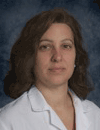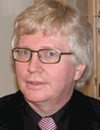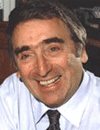Jean Boyer
Associate Research Professor, UPenn Medical CenterJean Boyer obtained her Ph.D. from Rutgers University. She is currently a Research Associate Professor of Pathology and Laboratory Medicine at the University of Pennsylvania. Dr. Boyer has been instrumental in developing DNA vaccines for HIV-1. She was lead author on the Nature Medicine paper that demonstrated DNA vaccines were capable of suppressing HIV-1 replication in the chimpanzee model and she studied the immune responses in the first set of clinical trials assessing HIV-1 DNA vaccines. She has demonstrated, using the non-human primate model, the importance of a strong CD8 proliferative response to suppress HIV-1 replication. And, most recently Dr. Boyer has begun to research the impact of chronic malaria infection on vaccine induced immune responses. Furthermore, Dr. Boyer has served as a director for the Human Immunology Core, Perelman School of Medicine, University of Pennsylvania. The core provides immunological assessment of immunotherapeutics and vaccines for infectious diseases and cancer. |  | | | Stefan Karlsson
Professor, Lund UniversityStefan Karlsson completed his MD degree at The University of Iceland and a PhD degree from University College London. After three years as a postdoctoral fellow with Arthur Nienhuis at The National Institutes of Health (NIH), Bethesda, MD, Dr Karlsson became Chief of The Molecular and Medical Genetics Section, NINDS, NIH. In 1995 he was recruited as a full professor to Lund University Hospital, Lund, Sweden where he is currently the head of the division of Molecular Medicine and Gene Therapy. Dr. Karlsson focuses his work on the regulation of hematopoietic stem cells and the development of stem cell expansion and gene therapy of hematopoietic stem cells. |  | | | Herman Waldmann
Professor, University of OxfordHerman Waldmann is currently (since 1994) Professor of Pathology and Head of the Sir William Dunn School in Oxford. He qualified in medicine in 1971, and then began his scientific career in Cambridge where he studied mechanisms by which cells of the immune system could interact to mount immune responses. During this period he developed new methods of measuring the frequencies of cells specific for antigen. This early work led him to become interested in immunological tolerance and achieving tolerance for therapeutic purposes.
Soon after the discovery of monclonal atibodies Waldmann spent a short sabbatical with Milstein where he began to develop rat monoclonal antibodies to mouse and human lymphocytes. From 1980 he has been funded by an MRC Programme Grant to study mechanisms of transplantation tolerance and strategies to achieve this both experimentally and clincially. In 1989 the University conferred on him a personal chair “Kay Kendall Chair in Therapeutic Immunology”. In 1985 he published the first studies to show that short courses of CD4 antibody therapy could bring about long-term immunological tolerance to foreign proteins, and this work led on to the first demonstrations of transplantation tolerance resulting from short-tem antibody blockade.
His interest in establishing the rules by which antibodies kill cells came from a desire to maximize lysis where desirable, and to blockade function without lysis as part of tolersnce protocols. It was this work with CD52 antibodies that brought him and Winter together.
His mechanistic studies of tolerance uncovered a role for regulatory T-cells in “Infectious Tolerance”which was published in a seminal paper in Science in 1993. The strategies emerging from his laboratory since that time have been based on the use of therapeutic antibodies to enhance regulation over conventional T-cell immunity.
In order to apply antibodies clinically Waldmann developed the first academic antibody therapeutic manufacturing facility. He and his team were able to apply clinical grade antibodies in a wide range of probing therapeutic studies which enabled them to develop a series of humanized antibodies (CD52, CD3, CD4 and others) which have since been transferred to the pharmaceutical industry. His teams worjk since 1971 has resulted in more than 500 publications, the majority directed to therapeutic antibodies and their mechanisms of action.
These contributions have led to his election to the Royal Society in 1990, and the award of the Jose Carreras medal of the European Hematology Society in 2005, and a JDRF Excellence in Clinical Research Award in the same year. In 2007 he was awarded the Thomas E Starzl Prize in Surgery and Immunology and a Scrip Lifetime Achievement award. In 2008 he was awarded an honorary degree (ScD) from the University of Cambridge. |  | | |
|

 Add to Calendar ▼2012-06-27 00:00:002012-06-28 00:00:00Europe/LondonBiotherapeuticsSELECTBIOenquiries@selectbiosciences.com
Add to Calendar ▼2012-06-27 00:00:002012-06-28 00:00:00Europe/LondonBiotherapeuticsSELECTBIOenquiries@selectbiosciences.com